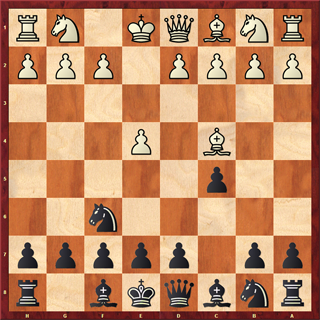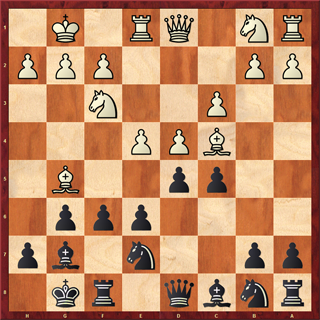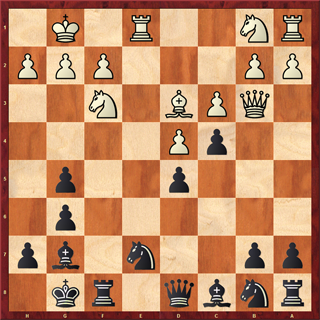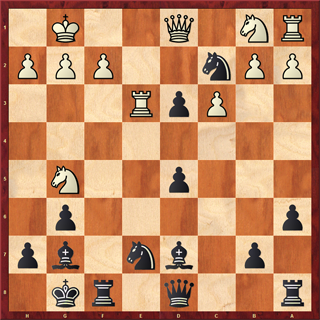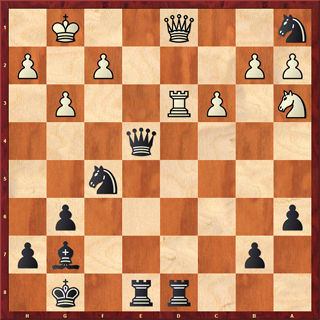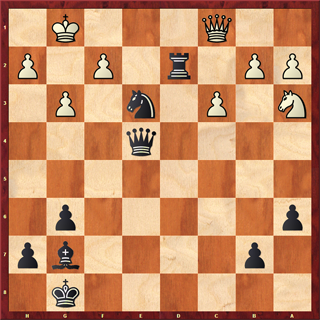Now that I have begun doing those warm-ups mentioned earlier, I am back to winning over half of my games. Here is one I played against Covak (1411) just moments ago. I had played him 80 games earlier with the result being a draw. During this game, with the aid of tactics, I was able to pull off a win.
Covak – Copeland
1. e4 c5 2. Bc4 Nf6
I believe Nf6 is the best possible defense when faced against 2.Bc4.
The move protects against pressure from the possibility of 3.Qf3, and at the same time attacks white’s precious e-pawn. The most typical of white’s responses is 3.e5 to attack the knight. However, this is debunked with 3…d5.
3. e5 d5 4. exd6 Qxd6 5. Nf3 Bg4 6. O-O Nc6 7. Re1 O-O-O 8. Bxf7 Nd4
I willingly allowed Covak to take my pawn with his bishop. I had something in store for him later down the road.
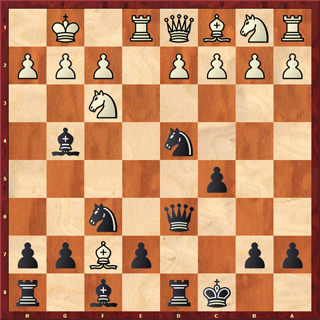
Notice the pressure that keeps building more and more around his king.
9. d3 Bxf3 10. gxf3 Qc6 11. Re3 g6 12. c3 Bh6 13. Rxe7 Nxf3+ 14. Kg2 Rxd3!!
Rxd3 was one of the most brilliant moves I have made in a while, and it demonstrates that I am growing steadily as a formidable tactician.
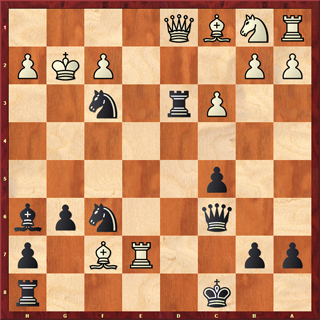
Sure, his queen can take the rook. However, this would be followed by 15…Ne1+!, and he loses his queen (or possibly the game if he didn’t move his king to f1). From that point it would likely steadily go downhill for him as there was so much pressure built up on his king. Covak’s response was…
15. Qe2? Nd4+ 0-1
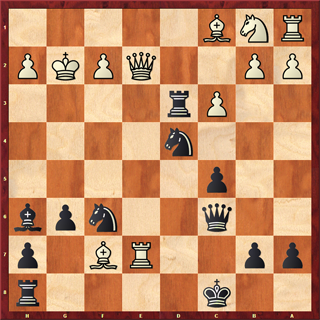
While 15.Qe2 wasn’t his worst possible move, it certainly wouldn’t win him a prize either. 15…Nd4+ wins the queen with a gain of six points. It also wins black a seemingly hopeless position. At this point, Covak ran out the rest of his ten minutes of the clock, perhaps hoping I would disconnect or would have ISP trouble. However, this fortunately did not happen. I gave him a negative evaluation for wasting almost ten minutes of my life. Had he continued (most likely with 16.f3), I would have given him, as I always do to opponents that blunder and keep going, an applause for effort.
Read Full Post »
